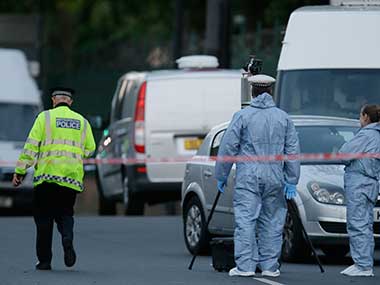Drummer Lee Rigby — a British soldier who had served in Afghanistan — was brutally hacked to death at a London street on 23 May 2013. The soldier was murdered by a couple of young guys who claimed be acting in the name of Islam. They shouted, ‘Allah u Akbar’ after they hacked the late Lee Rigby. This incident comes at a curious conjuncture and time: it occurs when there is a bit of a reaction against forms and aspects of globalisation, especially immigration, into the west, and perhaps more importantly when globalised Islam is becoming a presence and is thus ensconced in the west. The incident also impugns and casts doubts about multi-culturalism in the west. The murder raises a whole host of issues and questions that must be answered. The salient among them are these: Why do these incidents happen? Are these incidents representative of Muslims and Islam? Is globalised Islam-deterritorialised Islam (roughly speaking) — a security and cultural threat to western societies? Has multi-culturalism become a fetish in the west so much so that it makes host societies nervous and at the receiving end? How can the problem be resolved and future incidents like this be pre-empted? Incidents like the unfortunate murder of Lee Rigby — a man in the prime of his life, smothered by a couple of fanatics — it could be said, are one of a kind: isolated events or incidents from which a pattern cannot be deduced or inferred. It is not even implied here that this is not worrisome or should be ignored. [caption id=“attachment_821351” align=“alignleft” width=“380”]  Site where the British soldier was attacked. AP[/caption] No. To the contrary, the murder should and must raise alarm bells and concern over the nature of contemporary societies in the west and their direction. The west, by and large, has opened itself to non-western immigrants and the character and nature of western societies has been altered somewhat on account of this. Many western societies have, over time, morphed into genuine multi-cultural, polyglot societies with a diverse set of peoples forming the western firmament. This was met with some resistance. However, it mellowed down over time and coloured, non-western immigrants were accepted as members of their host societies, and as citizens with other rights. The west, especially, the Anglo-phone and Anglo-Saxon west, stood by its liberal principles and saw value in diversity and heterogeneity. However, this brought the west into contact with different cultures and societies whose view of the ‘good life’ stood in stark contrast to the philosophy and value systems of the west. Globalised Islam may constitute a classic example of this. This contact and nature of immigration — usually and initially comprising refugees and immigrants in search of a better life and opportunity — led to the formation of ethnic, cultural and religious ghettos wherein contact between the host societies and the new immigrants was minimal and more or less functional. Cultural, philosophical, and societal and educational differences of immigrants and their host societies added an overlay of estrangement and alienation between the two. This gulf only deepened and widened over a period of time and the phenomenon almost had the semblance of two or more nations cohabiting the same territory. Out of this emerged the concept of multi-culturalism, which had some benign and useful dimensions but also some very negative features and connotations. While multi-culturalism facilitated the integration and seamless coexistence of the primary, secondary and tertiary identities of immigrants, in some instances it legitimised ghettoisation and led to what has been called “the narcissism of small differences”. It also gave some ammunition to mischievous elements amongst the immigrant cohort to beat and harangue their host societies. This had an obverse reaction wherein members of host societies felt estranged from their host countries. Should multi-culturalism be then given up and abrogated? No is the answer. However, it needs to be truncated and a sense of proportion accorded to it. Abrogating it would lead to reaction and in some senses, it is almost impossible to reverse. Now coming back to the unfortunate killing: do the killers represent Islam and Islamic culture? Again, no is the answer. Islam, even though this assertion will sound bizarre to some, is a religion of peace and it has nothing to do with violence of any sort and kind. It is, however, the interpretation of Islamic texts that leaves scope for ambiguity and provides a justificatory premise for what are essentially psychopaths to perpetuate violence and terror in the name of Islam. Islam and its globalised version per se then is not a threat —cultural and security — to the west. However, it is important to watch out and stay on guard against the extreme and radical interpretation of Islam. A radical, fringe and lunatic element will always exist in every society and culture. The west is and will be no exception to this. There will be a lumpen element which would desire to harm and hurt western societies. These elements can only be contained by vigorous police action and intelligence, then weeded out and then marginalised. A note of caution is warranted here: police action and intelligence efforts must not assume Kafkaesque proportions. This will only draw the innocent into the so-called cause of extremists. What is needed is a fresh idiom smelling of roses that will allow different communities to see value and understand the beauty of the west and vice-versa. A lot is at stake here. Let not emotions dictate policy or attitudes towards immigrants, especially the Muslim variety. In the meantime, let drummer Lee’s soul rest in peace. The author is a Senior Policy Analyst with the J&K government. Views are personal
The gruesome killing of drummer Rigby has raised questions about whether global Islam can coexist in the west and whether multi-culturalism has its limits.
Advertisement
End of Article


)

)
)
)
)
)
)
)
)



